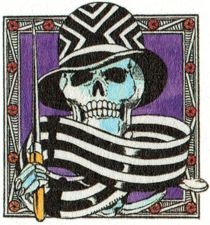Euthanasia - who has the right to choose?

|
Note: This is a user's personal page attached to their profile! This is not an actual article, may not be related to JoJo or Araki, and is not associated with the wiki. As such, it may not adhere to the policies. |
Euthanasia (εὐθανασία, 'good death' in Greek) is the practise of intentionally ending life to eliminate pain and suffering.
Origin of term
The first apparent usage of the term "euthanasia" belongs to the historian Suetonius, who described how the Emperor Augustus, "dying quickly and without suffering in the arms of his wife, Livia, experienced the 'euthanasia' he had wished for". The word "euthanasia" was first used in a medical context by Francis Bacon in the 17th century to refer to an easy, painless, happy death, during which it was a "physician's responsibility to alleviate the 'physical sufferings' of the body".
In current usage, euthanasia has been defined as the "painless inducement of a quick death".
Classification
Euthanasia may be classified into three types, according to whether a person gives informed consent: voluntary, non-voluntary and involuntary.
Voluntary euthanasia
Voluntary euthanasia is conducted with the consent of the patient. Active voluntary euthanasia is legal in Belgium, Luxembourg and Netherlands. Passive voluntary euthanasia is legal throughout the US per Cruzan v. Director, Missouri Department of Health. When the patient brings about their own death with the assistance of a physician, the term assisted suicide is often used instead. Assisted suicide is legal in Switzerland and the U.S. states of California, Oregon, Washington, Montana and Vermont.
Non-voluntary euthanasia
Non-voluntary euthanasia is conducted when the consent of the patient is unavailable. Examples include child euthanasia, which is illegal worldwide but decriminalised under certain specific circumstances in the Netherlands under the Groningen Protocol. Passive forms of non-voluntary euthanasia (i.e. withholding treatment) are legal in a number of countries under specified conditions.
Involuntary euthanasia
Involuntary euthanasia is conducted against the will of the patient.
History
Euthanasia was practiced in Ancient Greece and Rome: for example, hemlock was employed as a means of hastening death on the island of Kea, a technique also employed in Massalia. Euthanasia, in the sense of the deliberate hastening of a person's death, was supported by Socrates, Plato and Seneca the Elder in the ancient world.
Early modern period
The term euthanasia, in the earlier sense of supporting someone as they died, was used for the first time by Francis Bacon. In his work, Euthanasia medica, he chose this ancient Greek word and, in doing so, distinguished between euthanasia interior, the preparation of the soul for death, and euthanasia exterior, which was intended to make the end of life easier and painless, in exceptional circumstances by shortening life.



